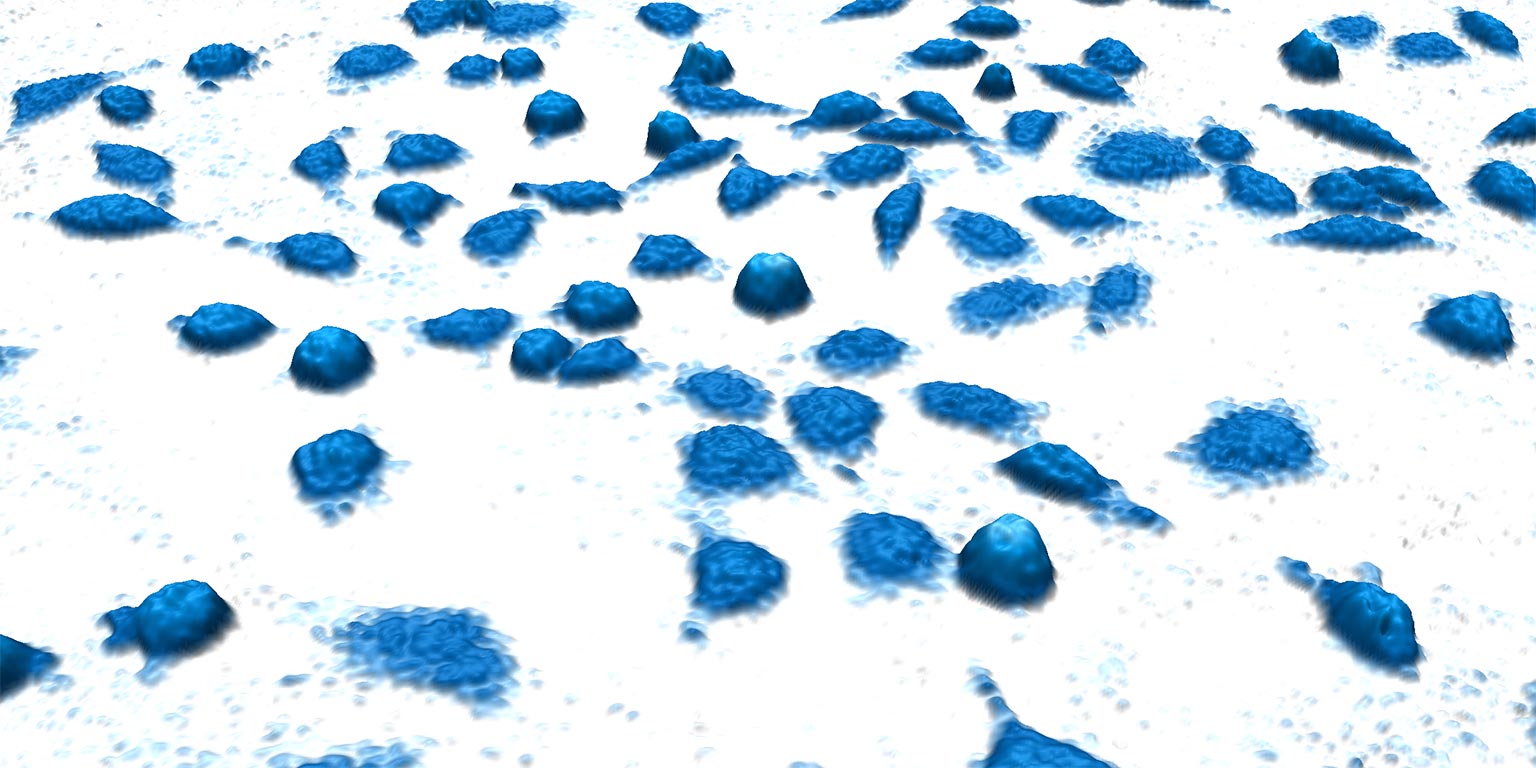
Kinetic Cell Motility Assay
Your automated and non-invasive kinetic cell motility assay

The HoloMonitor® Kinetic Cell Motility Assay is designed to explore the average motility of cells in a population and is ideal for studies investigating how various treatments, drug candidates, or environments, influence cell movement over time. Analyze long-term cellular movement in real-time right inside your standard incubator.
24h quantitative time-lapse video showing the dynamic of living cells, captured with HoloMonitor.
Benefits
Why choose the HoloMonitor Kinetic Cell Motility Assay?
Kinetic
Collect data automatically throughout the whole experiment — no more watching the clock to take time points.
Automatic
Receive immediate real-time data and image sequences while the experiment is still running.
Single-cell based
Trust the direct measurement of individual cells for your cell population motility results, thanks to QPI technology.
Non-invasive
Avoid cell behavior influences and toxins from cellular labels. Also, re-use your untouched cells for further experiments.
Assay Output
What results do you get with this Kinetic Cell Motility Assay?
The HoloMonitor Kinetic Cell Motility Assay measures the motility of a cell population over time.
This assay calculates and presents in real-time kinetic motility data of the mean speed of all cells in a population over time. In addition, you receive the accumulated mean distance at each time point.
- Mean cell speed [µm/h]
- Accumulated mean cell distance [µm]
- Cell images and time-lapse videos
- Combine with the Single Cell Tracking Assay for in-depth individual cell data
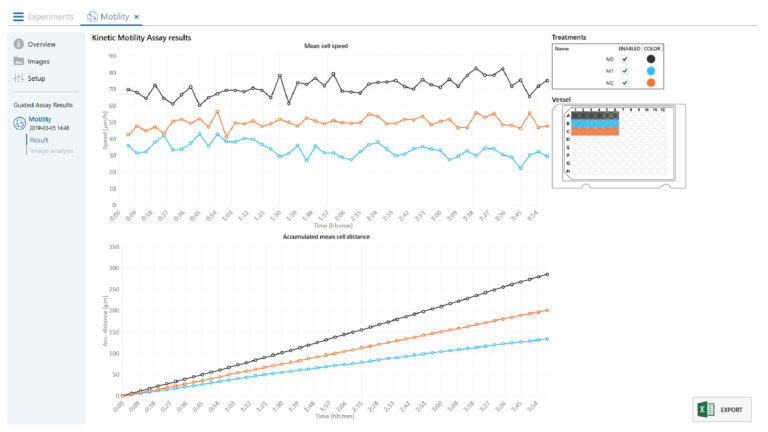
HoloMonitor imaging time-lapse of stem cells on microgrid arrays.
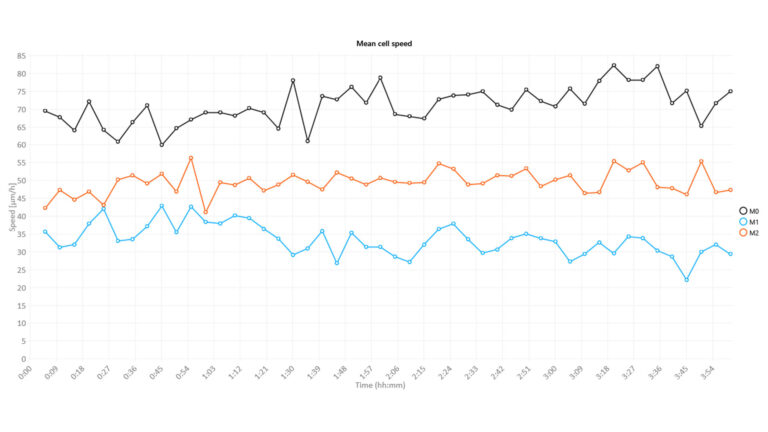
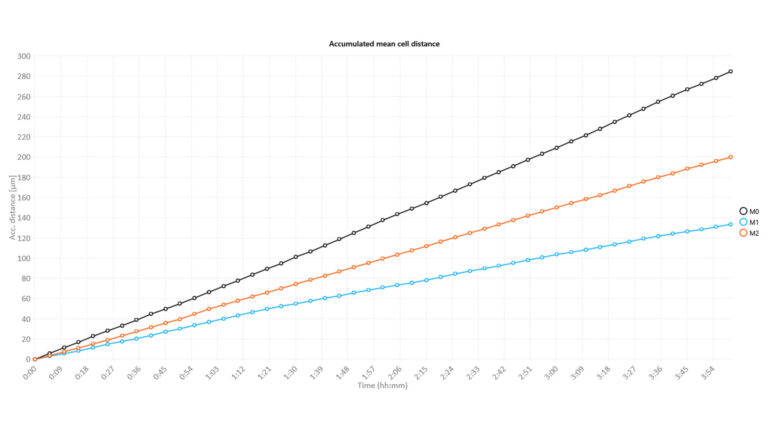
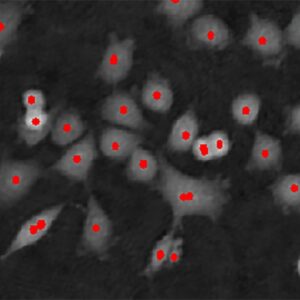
Single-cell based.
Get directly-measured cell population data
Compared to traditional phase contrast microscopy, the quantitative phase imaging (QPI) technology used by HoloMonitor offers exceptional automatic cell segmentation and identification no matter your cells’ shapes and sizes. This enables the software to robustly follow the movement behavior of every cell in the population over time, in real-time.
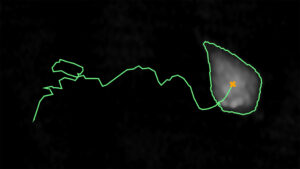
Do you further want to study kinetic motility on a single-cell level?
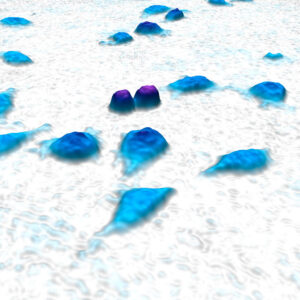
Automatic.
Save hours of hands-on lab time
The guided kinetic cell motility assay workflow not only reduces your hands-on lab time but also contributes to increasing your experiment reproducibility. Certainly, there is no need to supervise the imaging process with this walk-away assay. In fact, the HoloMonitor system automatically captures multi-well time-lapses with a high temporal resolution however long you would like to run your assay for. Also, the software automatically presents your population motility data while the experiment is still running.
In addition, the motility assay results can easily be re-analyzed with other HoloMonitor live cell assays to generate multiple results, such as proliferation data, and deeper insights — all from the same cell sample and without running further experiments.
On-demand Webinar
Watch our cell motility & cell migration webinar!
Find out how you can quantify cell movements using non-invasive live cell imaging and relate them to other cellular parameters, such as cell size and shape.
Key Applications
What can you study with the HoloMonitor Kinetic Cell Motility Assay?
Cell motility & Cell migration
Drug treatment effects
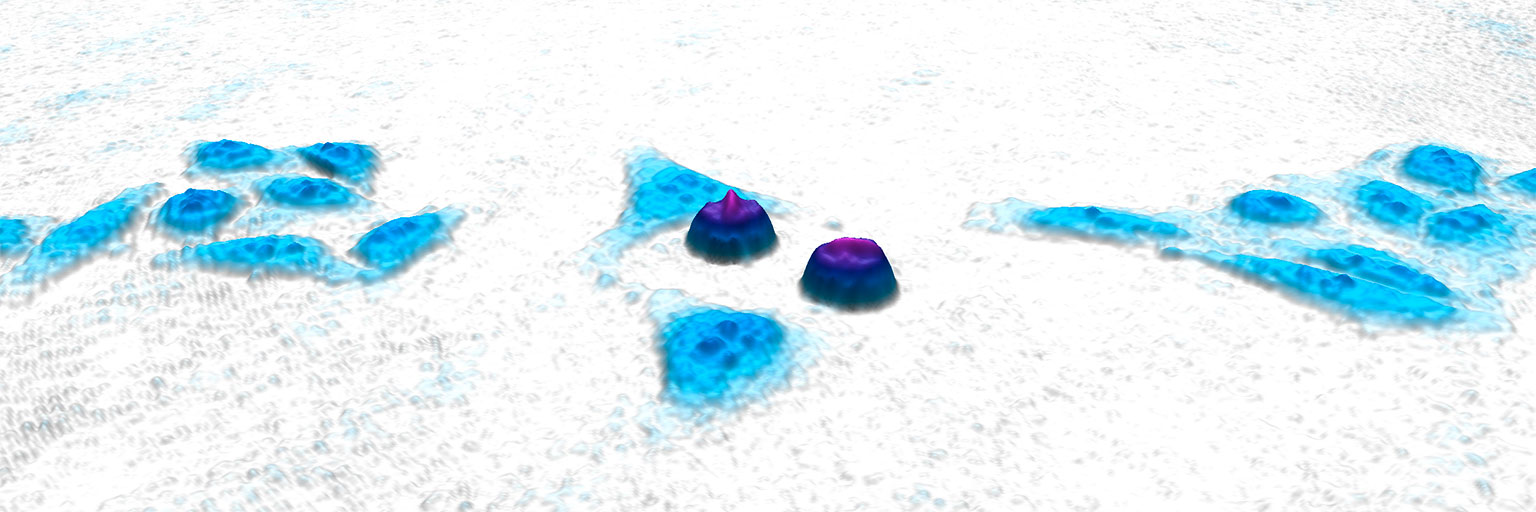
Cell Motility Assay Protocol
How do you set up this in kinetic cell motility assay?

1. Sample preparation
- Prepare your cell with your standard vessel and media as you normally would.
- Use HoloLids for optimal image quality and data acquisition.
- Click your cell culture vessel onto the HoloMonitor motorized stage and you are ready to go!
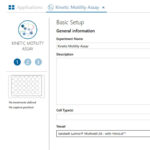
2. Assay setup
- Select the Kinetic Cell Motility Assay in the software and follow the guided workflow. Next, name your experiment and define treatments.
- Add the positions you want to image. Also, choose how often and for how long you want to image your cells.
- Start imaging and walk away!
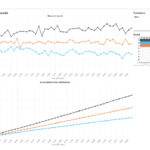
3. Explore results
- Receive real-time mean cell population motility data and time-lapse videos. Analyze the results with other live cell assays for added insights.
- Export the raw data to Excel for further analysis and customized data presentation.
- Re-use your untouched cells for other experiments!
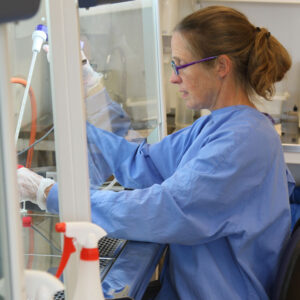
Kinetic.
We all know about the importance of time
HoloMonitor is a live cell analysis tool designed for and by cell biologists. So, we made sure that everything from assay setup, to imaging and data presentation, is making your daily lab routine easier. Therefore, your cells’ motility data is collected automatically throughout the whole experiment — no more watching the clock to tediously take time points yourself. Also, in comparison to taking only a few data points manually, this kinetic motility assay is providing you with multi-well data down to every minute, if you need it. As a result, you receive detailed real-time insights into how, for example, a drug treatment influences your cells’ motility behavior.
Cell Motility — An Alternative to the Transwell Assay

In Evaluation of Holographic Imaging Cytometer HoloMonitor M4 Motility Applications, Cytometry Part A (2018), Zhang et al. have shown that the average cell motility provides similar cell migration results as obtained by wound healing and transwell assays.
Cell motility is quantified by measuring the non-directional movement of cells in a standard cell culture sample. This makes it possible to quantify in vitro cell migration and cell proliferation simultaneously, without requiring cell starvation or special sample preparation, nor does it require any labels.
These findings were applied in Bi-allelic Loss of CDKN2A Initiates Melanoma Invasion via BRN2 Activation, Cell Cancer (2018).
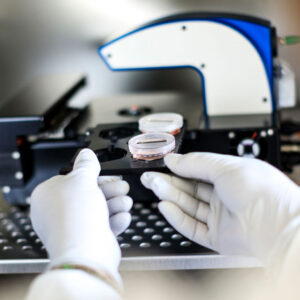
Non-invasive.
Create relevant assay conditions for relevant answers
By imaging right inside your standard incubator, HoloMonitor creates a stable and relevant assay environment for your cells. In addition, using this non-invasive motility assay does not only reduce the risk of unwanted toxicity. This assay also allows cell samples to be reused, as no reagents are added to the sample. Hence, they save time and money. But foremost non-invasive assays save hard-to-get cells. This way, the HoloMonitor Kinetic Cell Motility Assay is ideal for long-term studies of your live cell cultures.

Indeed, this technique has been demonstrated to accurately measure cell growth, cell motility and migration, cell death, cell cycle, and drug responses in a wide variety of cell lines in the laboratory and in the clinical setting.
Laura V. Croft et al.
Digital Holographic Imaging as a Method for Quantitative, Live Cell Imaging of Drug Response to Novel Targeted Cancer Therapies (2019)
Featured Publications
Browse our publication library for more references and see how our worldwide HoloMonitor users run their kinetic cell motility analysis.

Pim Kinase Inhibition Disrupts CXCR4 Signalling in Megakaryocytes and Platelets by Reducing Receptor Availability at the Surface
Journal: International Journal of Molecular Sciences (2024)
Research Areas: Hematology
Cell Lines: MEG-01, primary human platelets, primary mouse megakaryocytes

WISP-1 Regulates Cardiac Fibrosis by Promoting Cardiac Fibroblasts’ Activation and Collagen Processing
Journal: Cells (2024)
Research Areas: Cardiac Function
Cell Lines: HFCs
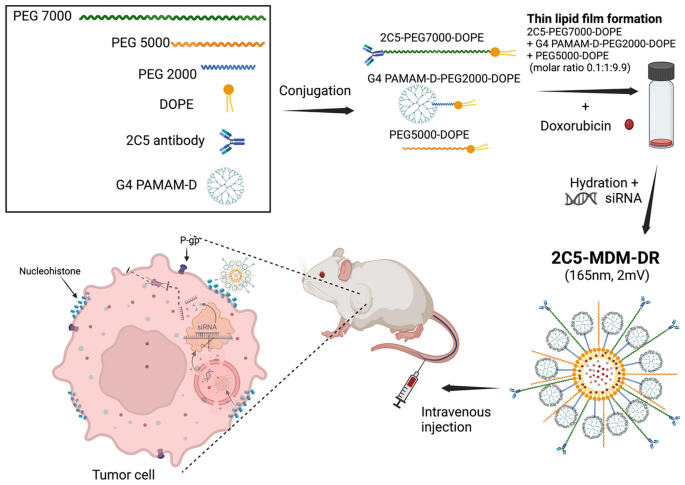
Evaluation of mAb 2C5-modified dendrimer-based micelles for the co-delivery of siRNA and chemotherapeutic drug in xenograft mice model
Journal: Drug Delivery and Translational Research (2024)
Research Areas: Cancer Research
Cell Lines: MDA-MB-231ADR

Label-free biomolecular and cellular methods in small molecule epigallocatechin-gallate research
Journal: Heliyon (2024)
Research Areas: Toxicity